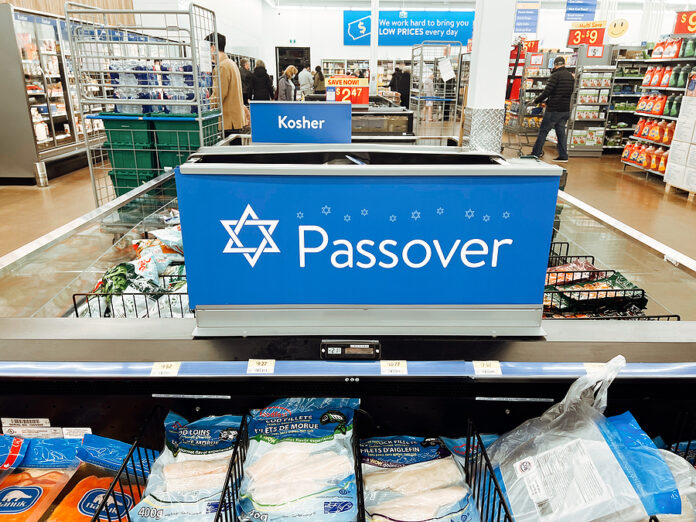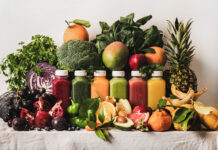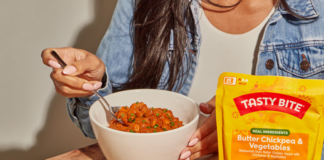
By Rabbi Moshe Elefant, Chief Operating Officer of OU Kosher
Key Takeaways:
- Kosher-certified private label products are gaining popularity among retailers as a strategy for differentiation, appealing to a broad range of consumers beyond just Jewish shoppers.
- Major retailers like Aldi, Trader Joe’s, Walmart, and Kroger are increasingly offering kosher-certified private label products, with some seeing significant sales from these items.
- Kosher certification can boost product appeal, increase sales, and cater to various dietary needs, and the certification process is often simpler than many manufacturers expect.
Private label products, also known as store brands, are increasingly used by retailers as a strategic way to stand out in the competitive grocery market. Among these, kosher-certified private label products are gaining momentum, appealing to a broad range of consumers and providing significant benefits for retailers looking to enhance their market presence.
The rise of kosher private label products
Research indicates that up to 70% of food products on U.S. store shelves sport some form of kosher certification, the trend shows no signs of slowing. Not only do kosher products appeal to observant Jewish consumers, but they are also viewed favorably by many others who associate kosher with higher quality preparation methods during manufacturing. Furthermore, when major companies are looking for suppliers to expand their private label line, they are more likely to choose suppliers who have kosher certification over those who don’t. In the United States, there are tens of millions of consumers — most of whom are not Jewish — who see kosher-certified food as having an added value, making kosher certification one of the most successful marketing programs. Products that carry a kosher supervision symbol can expect better shelf placement and the potential for increased sales — often outpacing non-certified alternatives by up to 20%.
Long embraced by the world’s biggest brands, kosher certification is now gaining traction among retailers’ private label products. Leading grocery retailers like Aldi and Trader Joe’s are setting the standard in this arena. Aldi generates a remarkable 80% of its sales from private labels, which include an impressive 3,756 OU kosher-certified items that include holiday favorites like turkey, chicken, and cornbread stuffing from private label Chef’s Cupboard. Trader Joe’s follows closely with 69% of its sales from private labels, offering 1,480 OU kosher-certified products with kosher offerings from their in-house brand including their wide range of Spices of the World. The OU symbol, which is owned by the New York-based Orthodox Union, the world’s largest kosher certification agency, is among the most famous and easily recognizable kosher certified symbols.
Retail giants such as Walmart, Kroger, and Costco are also capitalizing on this growth. Walmart, for instance, features 4,650 OU kosher-certified products across its private label lines such as Great Value, Marketside, and their newest Bettergoods brand. This strong emphasis on kosher certification not only helps these retailers cater to specific dietary needs but also positions their brands to sell more to a wider audience.
By focusing on kosher certification, retailers can address the preferences of a variety of consumers. These products are an attractive option for those with specialized diets, including vegans, lactose-intolerant individuals, those with allergies, and health-conscious shoppers. Products labeled “kosher pareve,” for example, are trusted by vegans and those avoiding dairy, while many consumers of multiple faiths accept kosher certification as an assurance that prohibited substances, like pork, are absent.
In addition, kosher certification from well-known agencies also elevates store brands, making them more attractive and trustworthy to consumers.
Simplifying the certification process
For many manufacturers, obtaining kosher certification is more straightforward than it may appear. There are numerous organizations dedicated to streamlining the process, making it easier for companies to certify their products, even if production occurs overseas. There is some nuance when it comes to picking who certifies products, so making sure to select a well-known and universally accepted kosher certifier is something to consider. When it comes to the products themselves, as long as products do not contain inherently non-kosher ingredients, including shellfish, pork, or a combination of meat and dairy products, certification can often be achieved through a simple review of ingredients and processes.
Certifying agencies also offer guidance to those brands who may opt to change some of their ingredients in order to qualify for kosher certification. The OU maintains databases of ingredients with certifications that can easily be substituted for those without. With a wealth of kosher-certified raw materials available — from oils to stabilizers — manufacturers are likely to find suitable substitutes for non-certified ingredients, making the transition to kosher more feasible than ever.
The future of private label and kosher certification
As the demand for private label products continues to rise, the importance of kosher certification will likely increase as well. For retailers aiming to differentiate their house brands in a crowded market, embracing kosher certification not only enhances their appeal but also aligns with evolving consumer preferences. By tapping into the benefits of kosher certification, retailers can build trust, reach more consumers and ultimately drive higher sales, proving that this strategy is not just for a niche market but is a smart business decision.
 Rabbi Moshe Elefant is the Chief Operating Officer of OU Kosher. As an industry expert, Rabbi Elefant oversees the certification and monthly inspection of 13,000 plants in 105 countries.
Rabbi Moshe Elefant is the Chief Operating Officer of OU Kosher. As an industry expert, Rabbi Elefant oversees the certification and monthly inspection of 13,000 plants in 105 countries.









